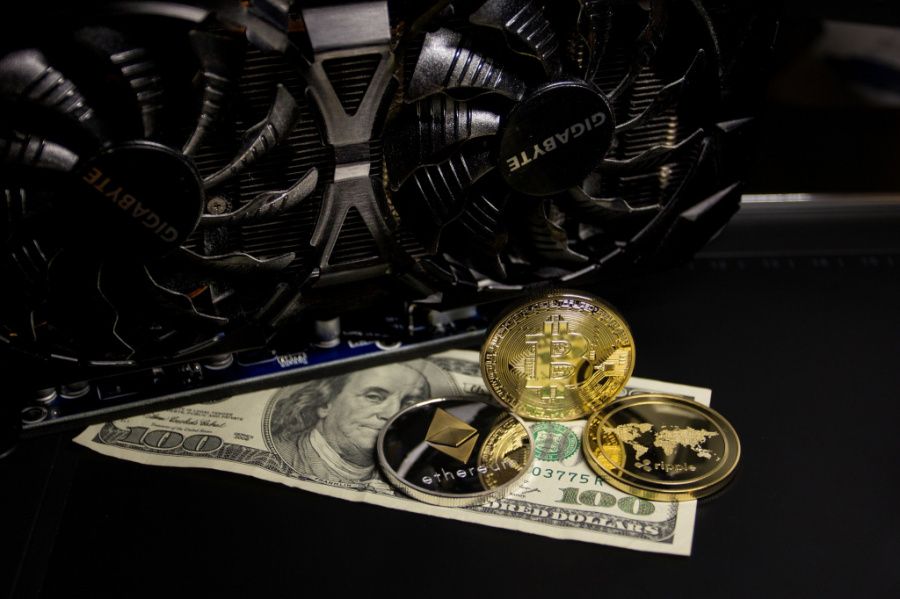Falling from Grace: Iran Changed its Stance on Cryptocurrency Mining and Began Hunting Miners

Iran has long been known as a crypto-friendly nation, but in the recent past it has changed its view towards this emerging industry. Currently, authorities in Iran are in the process of arresting bitcoin and cryptocurrency miners on a large scale. The move is a threat to the entire cryptocurrency industry as it cripples its planned growth.
According to the report by marketsandmarkets, the crypto asset market size was projected to grow from $1.6 billion in 2021 to $2.2 billion in 2026, at a CAGR of around 7.1 percent. The rise in venture capital investment is the main factor driving the growth and development of the digital currency market. However, the harsh measures against mining and trading activities will not make this dream come true.
Not supportive anymore
To show you that Iran has embraced cryptocurrency a lot in recent years, the country planned to do a lot with the asset in the future. For insurance, in February 2019, the country planned to use its state cryptocurrency, crypto-rial (called IranCoin), in trade with several countries, including Switzerland, Russia, the United Kingdom, Germany, France, Bosnia, South Africa, Austria, and many others, in order to circumvent the trade and economic sanctions imposed on it by the United States.
At one point, the country started looking at Bitcoin, crypto-assets, and distributed ledger technology (DLT) investments as a possible option to circumvent the sanctions that have hit its economy hard, slowing it down by almost 10% in the last 3 years. Iran partnered with a Turkish cryptocurrency mining company Miner and proposed a deal of over $7.3 million to boost the mining sector in the country.

To keep the crypto-mining candle burning, Iranian authorities licensed over 1000 digital currency mining companies by early last year (January 2020). The government had projected that crypto-mining is likely to contribute more than $9 billion to the economy, which would ease the economic turmoil in the country.
In May 2020, Iranian President Hassan Rouhani suggested that the government should draft an effective national cryptocurrency mining strategy, including directing the CBI, the country's central bank and the energy ministry to draft a new strategy on regulation and revenue from cryptocurrency mining.
In September 2020, Iran announced that it would start buying foreign cars (imported vehicles) with domestically mined crypto assets. This was a move to replace the hyperinflationary local currency rial with cryptocurrency to work in payments for imported car products. The CBI began plans of partnering with Kish to mine crypto-assets for importing cars in the free zones.
Hunt for miners
But in the first month of 2021, Iran changed its colors. The government began to hunt down unlicensed cryptocurrency-related companies that used the government's stream to mine digital currencies. At that time, authorities managed to seize about 46,000 bitcoin and crypto mining devices such as ASICs (app-specific integrated circuits). However, the government stated that the seized mining equipment consumed over 95 MW /h without incurring any costs.
The government also revealed that crypto-mining activities were also the cause of widespread power outages in the country, which also affected other businesses, hurting the already bleeding economy - so it had to spring into action and solve the power outage problem. The government had to announce a ban on mining activities. Due to the temporary ban on mining activities (the ban runs until September 2021), crypto miners operated under fear and by May 2021 it was clear that the crypto asset mining industry in Iran had suffered massively. The poor citizens who depended on crypto-asset mining businesses suffered and continue to suffer economically.

War on Bitcoin mining continues around the world
The suffering doesn't seem to be ending anytime soon. On June 22, 2021, Iranian authorities seized over 7000 bitcoin and crypto-asset mining machines including ASICs (cryptocurrency generators) from an abandoned factory. According to Tehran police chief General Hossein Rahimi, these rigs were used for illegal mining of digital currencies. Iran has one of the cheapest electricity in the world and this is one of the factors why it registered an influx of cryptocurrency miners into the nation, and according to Elliptic's report, Iran accounts for more than 4% of BTC mining. This means miners and the entire industry will suffer until the ban is lifted in September.
However, Iran is not the only country chasing bitcoin and cryptocurrency mining. China is not on good terms with miners either. Several provinces and cities in China, including Sichuan, Inner Mongolia, Yunnan, etc., have so far warned and shut down all trading and mining activities related to cryptocurrencies. China is banning mining and trading to pave the way for its own central bank digital currency (CBDC) e-CNY, which is expected to be launched during the upcoming Beijing Winter Olympics. Where elephants fight, it is the grass that suffers, and in this case, it is the cryptocurrency industry that suffers.
Other countries where cryptocurrencies are banned and where crypto mining is considered illegal include Pakistan, Algeria, Ecuador, Egypt, Nepal, Morocco and Bolivia.
However, BTC and crypto asset ownership and mining remain legal in several nations around the world. Therefore, the ball is now in the hands of these few remaining crypto-friendly countries to boom the industry and achieve their market size projection.
Price
News
Price
Price
News

(0 comments)